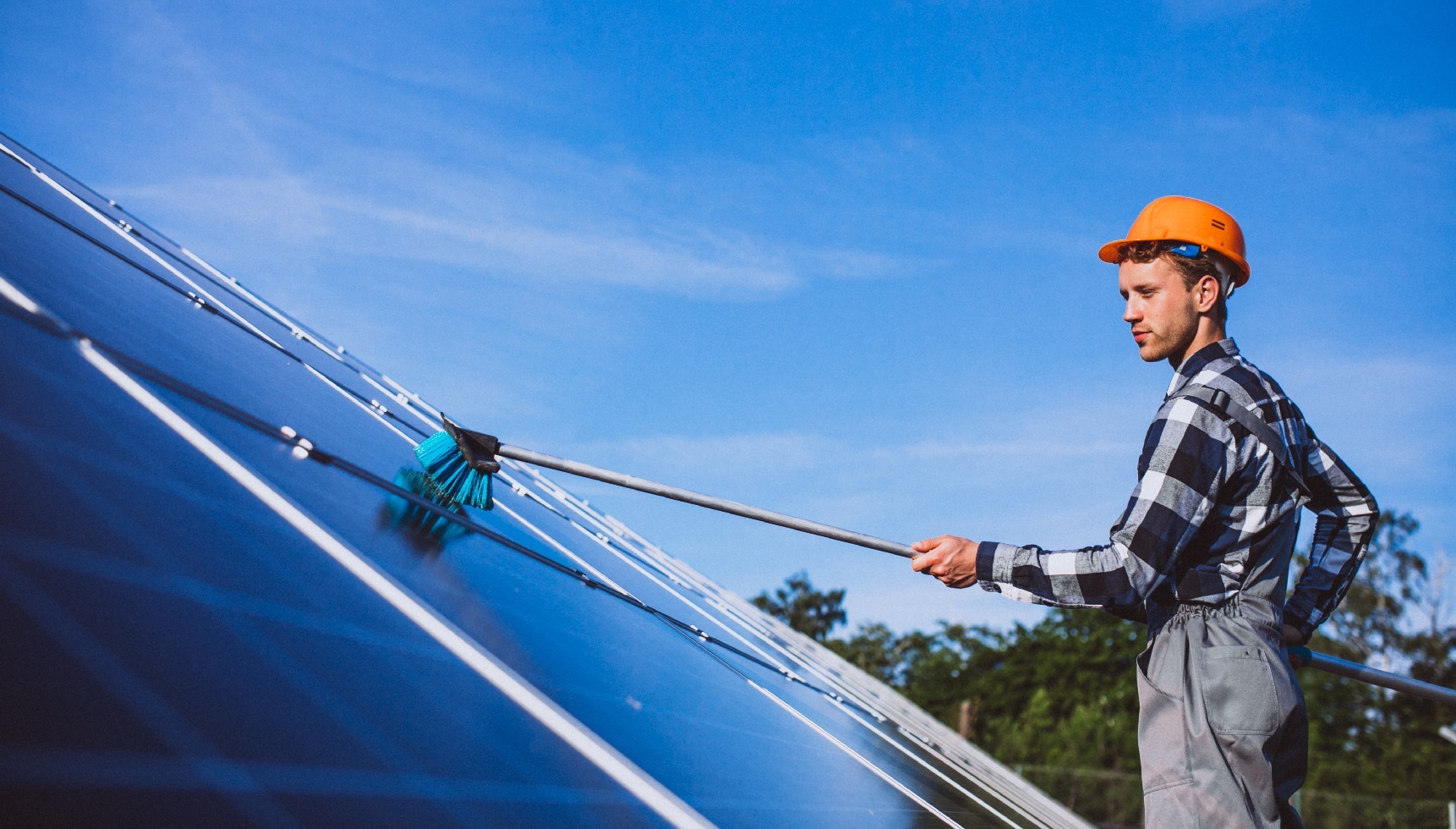We’ve all heard about the wonders of solar panels—the energy savings, the environmental benefits, and the peace of mind that comes from generating your own electricity. But to make sure your panels run at their highest efficiency, there’s something important that often gets overlooked: cleaning your solar panels. Yes, just like your car needs a wash now and then, so do your solar panels.
Let’s discover the perfect way to keep your panels clean and working at their maximum potential.
Why Cleaning Solar Panels is Important
Dirty solar panels can be sneaky energy thieves! Dust, dirt, bird droppings, and even leaves can accumulate over time, creating a layer that reduces the amount of sunlight reaching the solar cells. This results in reduced efficiency and ultimately, lower energy production. In some cases, studies have shown that dirty panels can lose up to 20-30% of their efficiency.
In a place like Pakistan, where dust storms are common in many regions, your panels might need a little more TLC than you initially thought. The good news? Cleaning them isn’t rocket science, and you don’t need any fancy tools.
How Often Should You Clean Solar Panels?
You might be wondering, “How often do I really need to clean my solar panels?” Well, the answer depends on your location and circumstances. For instance, if you live in a dusty or heavily polluted area, or near trees where birds are frequent visitors, your panels will likely get dirtier quicker. In general, it’s a good idea to inspect your panels every 4-6 months. If you notice a buildup of dirt or if there’s been particularly dusty weather, it might be time for a quick clean.
Pro tip: Keep an eye on your energy production. If you notice a sudden dip in your energy output, your panels may need a cleaning session.
The Perfect Way to Clean Solar Panels: A Step-by-Step Guide
Now that we understand the importance of keeping your solar panels clean, let’s get into the actual process of cleaning them.
1. Safety First
Before doing anything, make sure to prioritize safety. Before you start cleaning, turn off the solar system. If your panels are on the roof, use a sturdy ladder, and make sure you have non-slip footwear. If your roof has a steep pitch, it might be best to hire a professional for the job.
2. Check the Weather
Solar panels are best cleaned early in the morning or late in the evening when they are cool. Cleaning them in the heat of the day can cause the water you use to evaporate quickly, leaving streaks and possibly even damaging the panels due to the thermal shock from cold water hitting hot surfaces.
3. Use the Right Tools
You don’t need expensive cleaning kits. All you need is a soft cloth or sponge, clean water, and possibly a squeegee for drying. Avoid harsh chemicals or abrasive materials like metal brushes, as they can scratch or damage the panels.
Pro tip: If you have hard water in your area, use filtered or distilled water to prevent mineral deposits from forming on your panels.
4. Start with a Gentle Rinse
Begin by thoroughly cleaning the panels with a garden hose. This will wash away the loose dust and debris without needing to scrub hard. Just make sure the water pressure isn’t too strong, as high pressure could damage the panel’s surface or loosen wiring.
5. Gently Scrub Any Stubborn Spots
For any stubborn dirt or bird droppings that remain after rinsing, use your soft sponge or cloth to gently scrub the affected area. You don’t need to apply a lot of force—just let the water and soft sponge do the work. If the dirt is still stuck, a mixture of lukewarm water and mild soap should do the trick.
6. Dry Off the Panels
Once you’ve finished cleaning, it’s a good idea to dry the panels to prevent water spots or streaks. Use a soft squeegee or a lint-free cloth to remove any remaining water. If it’s a breezy day, you might even let the sun do the drying for you!
What to Avoid While Cleaning Solar Panels
Now that you know how to clean solar panels correctly, let’s look at what NOT to do:
- No Pressure Washers: High-pressure water can damage the delicate surface of the solar panels.
- Avoid Harsh Chemicals: Some chemicals can be abrasive and reduce the efficiency of your panels over time.
- Don’t Walk on the Panels: Walking on your solar panels could damage them or reduce their performance.
Hiring a Professional vs. DIY Cleaning
Cleaning solar panels yourself can save you money, but if your panels are on a high or steep roof, hiring a professional may be a safer and more convenient option. Professional cleaners will not only clean the panels but also check for any damage or wear that could impact your system’s performance.
Clean Panels for Maximum Efficiency
So, there you have it! Cleaning your solar panels is a simple task, but one that can significantly improve their efficiency and lifespan. By incorporating regular cleaning into your maintenance routine, you’ll ensure that your solar panels keep providing you with the energy savings you expect.
Think of it like maintaining your car—just a little cleaning and upkeep go a long way in making sure everything runs smoothly. Solar panels are a long-term investment, so why not take the steps to ensure they’re working their best?
And remember, if you want to learn more about the longevity and durability of solar panels, don’t forget to check out my earlier post on How Long Do Solar Panels Last?
So, are you ready to maximize your solar system’s efficiency? Whether you’re thinking about cleaning your panels or learning more about solar energy, we’re here to help you every step of the way.








